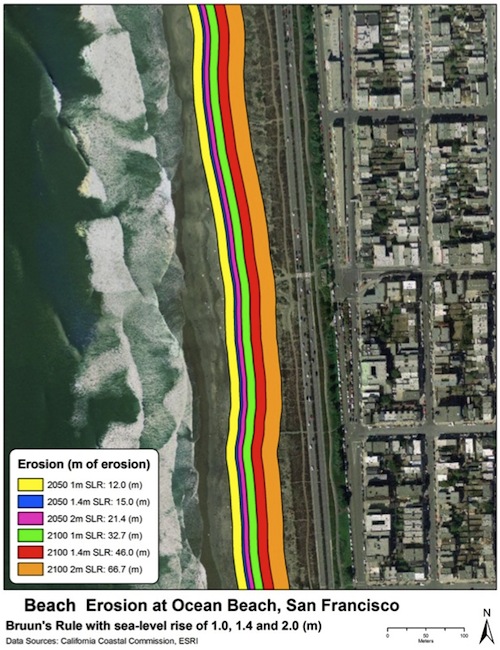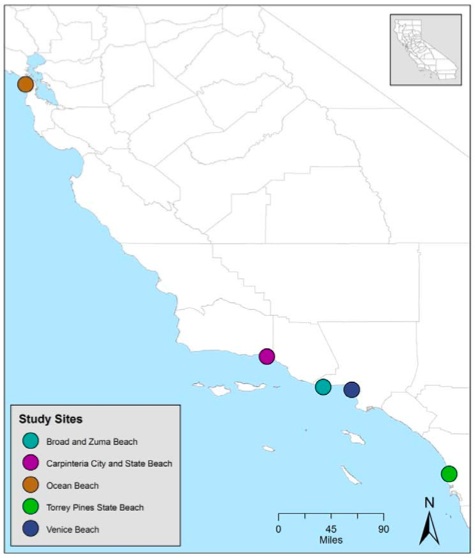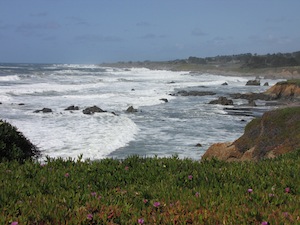As sea levels rise, so does the economic toll on coastal communities
What happens to the beach economy when the beach is vanishing?
That’s what a new study seeks to answer in some of the most specific terms yet attempted.
The projections are from a team at San Francisco State University led by economist Philip King, who says in the study release that “Sea level rise will send reverberations throughout local and state economies.” He expects those reverberations to come from the effects of temporary flooding, beach and upland (cliffs and dunes) erosion, which King has estimated for five California locations, using sea-rise scenarios ranging from one-to-two-meters (6.5 feet) by the end of the century.
In addition to damage from extreme weather events and tides, the disappearing beaches themselves represent an opportunity cost. For example, the study estimates that under a mid-range sea rise scenario the “recreational value” of San Francisco’s Ocean Beach could shrink 23% by 2050, and tax revenues from that resource could dwindle by $300,000 (17%) annually. That scenario, which assumes an overall sea rise of 1.4 meters (4.5 feet) this century, estimates the beach’s recreational value at zero by 2100.
 Similar scenarios are laid out–with generally less dramatic results–for Malibu, Venice Beach, San Diego (Torrey Pines), and Carpenteria on the south-central coast. King figures that L.A.’s legendary Venice Beach could lose $440 million in tourist dollars by the end of this century.
Similar scenarios are laid out–with generally less dramatic results–for Malibu, Venice Beach, San Diego (Torrey Pines), and Carpenteria on the south-central coast. King figures that L.A.’s legendary Venice Beach could lose $440 million in tourist dollars by the end of this century.

Prior studies have put values on the total amount of coastal real estate “at risk” from sea level rise but have mostly stopped short of predicting actual damages.
The complete study is not available online but more information will be posted at the SF State site. The peer-reviewed work was commissioned by the state Dept. of Boating & Waterways.
One thought on “Rising Seas and Your Wallet”
Comments are closed.


Has anyone noted that sea levels have been declining for the last two years, while the CO2 continues to rise? More details here: http://www.real-science.com/uncategorized/sea-level-continues-historic-decline